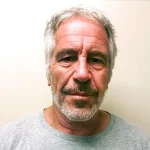
Authored by Brett Wilkins via Common Dreams,
Peruvian human rights defenders said Friday that the death toll has risen to 21 in nationwide protests sparked by the ouster and jailing of leftist President Pedro Castillo, whose pretrial imprisonment term was extended to 18 months by the Andean country's high court.
For the 10 straight day, Peruvians took to the streets of cities and towns across the country, denouncing what many are calling a "coup" against Castillo, while demanding his immediate release, the removal of unelected interim President Dina Boluarte, the dissolution of Congress, and new elections. Protesters defied bullets, batons, gas bombs, curfews, and a 30-day national state of emergency declared on Wednesday, a move that suspended the right to assemble and move freely about the country.

Demonstrators blocked roads, leading to the deaths of six people in traffic accidents, according to The Guardian. Peru's El Commercio reports a 12-day-old baby being rushed to a hospital in Lima died due to roadblocks. Protesters also forced the closure of five airports, leaving travelers and tourists stranded in places including near the popular Machu Picchu complex.
In addition to the deaths, at least 426 people, including 216 security personnel, have been wounded in the capital Lima and other regions, the Ombudsman's Office of Peru said.
Reuters reports eight people were killed Thursday as state security forces moved to suppress protests in the southern Andean city of Ayacucho, where demonstrators torched the local judiciary and prosecutor's office. The city's government blamed Boluarte and her defense and interior ministers for the deaths while demanding "an immediate cessation of the use of firearms... against our people."
Citing a flight risk posed by Castillo, a judicial panel of Peru's Supreme Court of Justice on Thursday ordered the deposed president held for 18 months while prosecutors investigate charges of rebellion and conspiracy. Prior to his removal, Castillo attempted to dissolve Congress and declare an emergency government in which he would rule by decree.
Castillo denies the charges. On Thursday, his Twitter account posted a handwritten note in which Castillo sounded the alarm over a meeting held the day before his removal at the Government Palace in Lima between Boluarte and U.S. Ambassador Lisa Kenna, a former longtime CIA agent appointed by former President Donald Trump.
Peru goes on the 9th day of protest against the coup govt. They can be heard chanting “Congress will fall!” It’s becoming clear that early elections will not be enough to quiet the protests. As the state of emergency continues, more military are deployed, leading to 1 death today pic.twitter.com/dPUJyjlvCu
— Manolo De Los Santos (@manolo_realengo) December 15, 2022
The note alleges the meeting "was to give the order to take the troops out into the streets and massacre my defenseless people; and, incidentally, leave the way clear for mining exploitation, as in the case of Conga, Tía María, and others."
Boluarte's office said that Kenna has "reiterated her country's full support for democratic institutions in Peru and for the actions of the constitutional government to stabilize the social situation."
In addition to the United States, Canada, Chile, Costa Rica, Ecuador, and Uruguay have recognized Boluarte's government. On the other hand, leftist leaders of 10 regional nations met Wednesday in Havana, Cuba to "reject the political framework created by right-wing forces" against Castillo.
Earlier this week the leftist leaders of Argentina, Bolivia, Colombia, and Mexico issued a joint statement expressing their "deep concern" over Castillo's ouster and imprisonment.
Peru's National Coordinator for Human Rights (CNDDHH) called for an immediate end to the use of force against protesters, blaming the country's "highest political authorites" for the deaths.
#Peru: Protesters conducting a prisoner exchange yesterday with police amidst heavy anti-government protest clashes across Peru. For every protester arrested, the protesters grabbed a policeman and held him behind protest lines.
— POPULAR FRONT (@PopularFront_) December 15, 2022
(via @OLAASM) pic.twitter.com/dvPe2qyN82
Speaking at a Friday CNDDHH hearing, Rafael Goto, a pastor and former president of the National Evangelical Council, called for early elections and said that "there can be no ethical democracy based on murders."
CNDDHH executive secretary Jennie Dador Tozzini claimed at least 147 cases of arbitrary detention, telling the hearing that "when our lawyers went to police stations, they were not allowed to pass."
Press freedom advocates also condemned attacks on journalists. Zuliana Laines Otero, who heads Peru's National Association of Journalists, said during the hearing there have been 69 such incidents during the protests.
Footage from clashes between protesters & police in #Peru causes for the arrest of President Rafael #Castillo.
— bkeithb (@bkeithb) December 17, 2022
So far, more than 30 people have been killed & hundreds injured. The largest number of victims is reported from Ayacucho province, where 7 residents have been killed. pic.twitter.com/Bxf5MQNuLR
"The freedom of journalists to report is fundamental in a democracy and even more so in a moment of political crisis like the one Peru is experiencing," Human Rights Watch said in response to the arrests.
Dador emphasized that "the right of defense must be exercised from the moment the police arrest you, the democratic space is closing; we are on the way to authoritarianism."
Authored by Brett Wilkins via Common Dreams,
Peruvian human rights defenders said Friday that the death toll has risen to 21 in nationwide protests sparked by the ouster and jailing of leftist President Pedro Castillo, whose pretrial imprisonment term was extended to 18 months by the Andean country’s high court.
For the 10 straight day, Peruvians took to the streets of cities and towns across the country, denouncing what many are calling a “coup” against Castillo, while demanding his immediate release, the removal of unelected interim President Dina Boluarte, the dissolution of Congress, and new elections. Protesters defied bullets, batons, gas bombs, curfews, and a 30-day national state of emergency declared on Wednesday, a move that suspended the right to assemble and move freely about the country.

Demonstrators blocked roads, leading to the deaths of six people in traffic accidents, according to The Guardian. Peru’s El Commercio reports a 12-day-old baby being rushed to a hospital in Lima died due to roadblocks. Protesters also forced the closure of five airports, leaving travelers and tourists stranded in places including near the popular Machu Picchu complex.
In addition to the deaths, at least 426 people, including 216 security personnel, have been wounded in the capital Lima and other regions, the Ombudsman’s Office of Peru said.
Reuters reports eight people were killed Thursday as state security forces moved to suppress protests in the southern Andean city of Ayacucho, where demonstrators torched the local judiciary and prosecutor’s office. The city’s government blamed Boluarte and her defense and interior ministers for the deaths while demanding “an immediate cessation of the use of firearms… against our people.”
Citing a flight risk posed by Castillo, a judicial panel of Peru’s Supreme Court of Justice on Thursday ordered the deposed president held for 18 months while prosecutors investigate charges of rebellion and conspiracy. Prior to his removal, Castillo attempted to dissolve Congress and declare an emergency government in which he would rule by decree.
Castillo denies the charges. On Thursday, his Twitter account posted a handwritten note in which Castillo sounded the alarm over a meeting held the day before his removal at the Government Palace in Lima between Boluarte and U.S. Ambassador Lisa Kenna, a former longtime CIA agent appointed by former President Donald Trump.
Peru goes on the 9th day of protest against the coup govt. They can be heard chanting “Congress will fall!” It’s becoming clear that early elections will not be enough to quiet the protests. As the state of emergency continues, more military are deployed, leading to 1 death today pic.twitter.com/dPUJyjlvCu
— Manolo De Los Santos (@manolo_realengo) December 15, 2022
The note alleges the meeting “was to give the order to take the troops out into the streets and massacre my defenseless people; and, incidentally, leave the way clear for mining exploitation, as in the case of Conga, Tía María, and others.”
Boluarte’s office said that Kenna has “reiterated her country’s full support for democratic institutions in Peru and for the actions of the constitutional government to stabilize the social situation.”
In addition to the United States, Canada, Chile, Costa Rica, Ecuador, and Uruguay have recognized Boluarte’s government. On the other hand, leftist leaders of 10 regional nations met Wednesday in Havana, Cuba to “reject the political framework created by right-wing forces” against Castillo.
Earlier this week the leftist leaders of Argentina, Bolivia, Colombia, and Mexico issued a joint statement expressing their “deep concern” over Castillo’s ouster and imprisonment.
Peru’s National Coordinator for Human Rights (CNDDHH) called for an immediate end to the use of force against protesters, blaming the country’s “highest political authorites” for the deaths.
#Peru: Protesters conducting a prisoner exchange yesterday with police amidst heavy anti-government protest clashes across Peru. For every protester arrested, the protesters grabbed a policeman and held him behind protest lines.
(via @OLAASM) pic.twitter.com/dvPe2qyN82
— POPULAR FRONT (@PopularFront_) December 15, 2022
Speaking at a Friday CNDDHH hearing, Rafael Goto, a pastor and former president of the National Evangelical Council, called for early elections and said that “there can be no ethical democracy based on murders.”
CNDDHH executive secretary Jennie Dador Tozzini claimed at least 147 cases of arbitrary detention, telling the hearing that “when our lawyers went to police stations, they were not allowed to pass.”
Press freedom advocates also condemned attacks on journalists. Zuliana Laines Otero, who heads Peru’s National Association of Journalists, said during the hearing there have been 69 such incidents during the protests.
Footage from clashes between protesters & police in #Peru causes for the arrest of President Rafael #Castillo.
So far, more than 30 people have been killed & hundreds injured. The largest number of victims is reported from Ayacucho province, where 7 residents have been killed. pic.twitter.com/Bxf5MQNuLR
— bkeithb (@bkeithb) December 17, 2022
“The freedom of journalists to report is fundamental in a democracy and even more so in a moment of political crisis like the one Peru is experiencing,” Human Rights Watch said in response to the arrests.
Dador emphasized that “the right of defense must be exercised from the moment the police arrest you, the democratic space is closing; we are on the way to authoritarianism.”
Loading…







